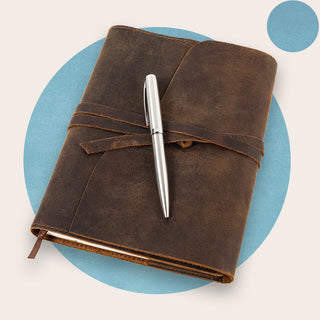Are you having trouble sleeping? Do you want to keep track of your sleeping patterns so that you can better assess what exactly it is that you are having difficulties with? Need some tips on how to keep the best sleep diary for your needs?
Then step forth and saddle up as we explore what a sleep diary is, why you might keep one, and where exactly to start!
What is a Sleep Diary?
It is exactly what it says on the tin, a diary for chronicling the various sleep habits that you exhibit in the hope that you will be able to fall asleep better or at least gain a better understanding of your habits (and whether or not you have any sleep disorders).
All diaries should be different and the sleep diary is no exception, though there are a number of things that many sleep diaries will typically include, such as details regarding:
- bedtime
- rising time
- how long it takes to lose consciousness
- the number of sleep interruptions and the relative duration of each
- the number of daytime naps and the relative duration of each
- the quality of the sleep in your own opinion
- consumption of alcohol, caffeine, tobacco, and other drugs that are known to affect the quality and quantity of sleep
- other daily medications that you are currently taking (in the long or short term)
- any exercise that you are performing (in the long or short term)
So, in this way, a sleep diary (or sleep journal/log) is tasked with keeping track of sleep patterns so you have a more objective source to go by.
What's the Point?
Many studies have shown that using a sleep diary can be incredibly useful for evaluating a person's sleep and determining - if indeed there is an issue - how best to go about remedying it. Indeed, just as self-esteem journaling can improve your overall mood, a sleep diary can also.
For this reason, the Consensus Sleep Diary was created to bring about the first standardized sleep diary. Developed in collaboration with a number of insomnia experts from around the world, this is a great way to work out whether you have a sleep disorder or are just experiencing a bout difficulty with sleeping for other reasons.
The mind is a fickle and forgetful thing, often forgetting things that it has just done in an attempt to remember new things. For this reason, it can be incredibly difficult to keep proper track of how much sleep we are actually getting with just our minds alone. For this, a diary of some kind is needed to provide a more objective basis for sleep analysis.
Identifying habits of sleeping and rest is the first step to creating good sleeping habits and the cheapest and most effective way to do this is to use a sleep log of some kind.
How to Use a Sleep Diary
One of the most important things to do when using a sleep tracker is to ensure that you are keeping it as up-to-date as possible. Any possible inaccuracies could spell disaster later down the line.
For example, if you were to put down the wrong information, your doctor might prescribe you a clinical sleep medicine that you might not otherwise need. In such an instance, it could do irreversible damage to your sleep and to your psyche. Before you approach any sleep specialist, try to verify all of the information as much as possible.
As with any journal, the more you put into it, the more you will get out of it. Maintaining a regular routine in which you keep track of every single aspect of your rest states will give your doctor a more accurate picture with which to work and help your sleep for good.
A useful thing to do when you are first starting out is to work out how long a timespan you wish to capture in your sleep diary. If you are new to this sort of thing, then try to work within a shorter timespan as you will be able to look forward to the end a little sooner.

Attaining a Healthy Sleep Environment
Before you approach any doctor about your difficulties with falling asleep, try to make sure that your sleeping space is ticking at least some of the boxes below detailing the traits of a healthy sleep environment.
- A cool bedroom temperature will suit some more than others, but it has been shown that keeping your thermostat between 65 and 68 degrees Fahrenheit is most effective.
- Eliminating outside noise and distractions is a quick and easy fix to help you get to sleep quicker. If you live in a particularly noisy house or area, then you can always use earplugs to do the job.
- Keeping the room dark with blackout curtains or a sleep mask will help block out the light from the early hours that can otherwise wake you up prematurely.
- Keeping your sheets and blankets clean on a semi-regular basis has also been shown to be conducive to a good and healthy night's sleep.
- For those who are looking to take it to the next level, you can always explore scent therapy, using soothing aromas to guide you into a cozy sleep space.
A Word on Sleep Hygiene
If this all seems a little overwhelming for you - especially if you are new to keeping track of yourself in this way - then you can always follow a relatively simple checklist to ensure that you are getting the most out of your rest.
Ask yourself:
- Are you giving yourself enough time to sleep each night?
- Is your sleep schedule consistent from night to night or is it rife with change?
- Are you spending a considerable amount of time lying in bed in the static struggle between consciousness and unconsciousness?
- Do you experience any disruptions in your sleep? If so, how many? Are there any patterns that might explain why this is the case?
- Is your sleep satisfying enough that you don't feel drowsy during the day? If not, at what points is this drowsiness most acute?
- Are you taking naps? Are they either too long or too late in the day to contribute toward healthy sleep hygiene? Are they, instead, affecting the quality of your sleep at night?
- Is your consumption of alcohol, caffeine, tobacco, and other drugs or medication affecting the quality and quantity of your sleep?

Time for a Routine
Arguably the best thing you can do for yourself and your sleep habits is to engage in a healthy routine.
A common misconception with sleep routines is that the focus is solely on the happenings of the evening when, in reality, it is important how you carry yourself throughout the day. Indeed, if the morning is how you enter the world again at the beginning of the day, then it is surely just as important as how you leave it to enter the world of sleep at the end.
Here are just a few tips you might follow to help you get into the swing of a healthy sleep routine:
- Try waking up around the same time each day (even on weekends) to be helpful to your body clock.
- Give yourself a couple of hours to wake up instead of rushing straight into the day's work.
- Vitamin D and exposure to daylight are a must.
- Excusing yourself from indulging in another coffee in the afternoon and, in fact, curbing all caffeine intake by 2 pm each day will ensure that your mind is not racing before bed.
- Limiting the use of naps to when they are absolutely necessary (and only 20 minutes tops in length).
Final Words
So, there you have it! Hopefully, you are now feeling ready and able to tackle your sleep routine and grab it by the horns with your very own sleep diary!
FAQs Sleep Diary
WHAT IS INCLUDED IN A SLEEP DIARY?
A sleep diary should include as many particulars about a person's sleep routine as possible, including but not limited to the quality and quantity of sleep each night, the quality and quantity of naps during the day (and what time they were had), consumption of any substances that might otherwise affect the quality and/or quantity of sleep, etc.
WHAT IS A SLEEP DIARY USED FOR?
A sleep diary is used to achieve a more objective perspective on your sleep patterns and habits. The mind is a fickle and forgetful thing and it can be incredibly difficult to keep proper track of how much sleep we are actually getting with just our minds alone. For this, a diary of some kind is needed to provide a more objective basis for sleep analysis.
WHAT IS A SLEEP DIARY?
A sleep diary is a type of diary that is used to keep a more objective track of the movements and developments of your sleeping habits and routines.
WHY USE A SLEEP DIARY?
Sleep diaries are often used by those who are otherwise experiencing difficulties with their sleep, either in maintaining a regular and healthy sleep routine and/or experiencing the detrimental effects of this lack of sleep routine. Keeping track of sleep in this way can help a medical professional more accurately administer medical assistance.
HOW DO YOU USE A SLEEP DIARY?
A sleep diary should be kept as accurate as possible, lest a medical professional does some serious long-term harm once they have been involved. An inaccuracy might spell disaster if, say, a doctor administers a medication that you don't otherwise need.



